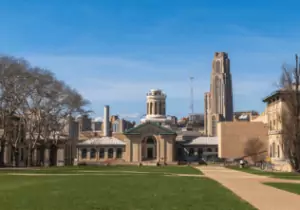Emotional Support Animal (ESA) Letter For College Students
Navigating college pet policies can be challenging, but Wellness Wag simplifies it with clear guidance on pet-friendly colleges, housing, and ESA policies, so you can focus on your education & ensure your furry friend’s wellbeing.


Laws that Protect a College Student’s ESA
Bringing an Emotional Support Animal (ESA) to college can be important for students dealing with mental health challenges. Thankfully, several federal laws protect your right to have an ESA in college housing, ensuring you can have the support you need. Understanding these laws will help you navigate the process and confidently advocate for your rights.

Fair Housing Act (FHA)
The Fair Housing Act (FHA) is the primary law that protects students with ESAs in college housing. Under the FHA, colleges and universities must provide reasonable accommodations for students with disabilities, which includes allowing ESAs to live in on-campus housing, even if there’s a general “no pets” policy. With a valid ESA letter from a licensed mental health professional, your college cannot deny your ESA or charge additional fees for having them in your dorm. The only condition is that your ESA should not cause significant disruption or damage.

Americans with Disabilities Act (ADA)
While the Americans with Disabilities Act (ADA) primarily covers service animals, it still protects students with ESAs. The ADA makes sure that students with disabilities receive reasonable accommodations. While it does not specifically require ESAs to be allowed in all areas of the campus, it supports the rights provided under the FHA for housing. This means that while your ESA may not be allowed in classrooms or dining halls, they are protected in your living space on campus.

Section 504 of the Rehabilitation Act
Section 504 is the civil rights law that protects students with disabilities in educational settings. This law prohibits discrimination based on disability in any program or activity that receives federal financial assistance, which includes most colleges and universities. Under Section 504, schools must make reasonable accommodations for students with disabilities, including those who require an ESA for emotional support. This ensures that you have the same access to housing and educational opportunities as other students.























